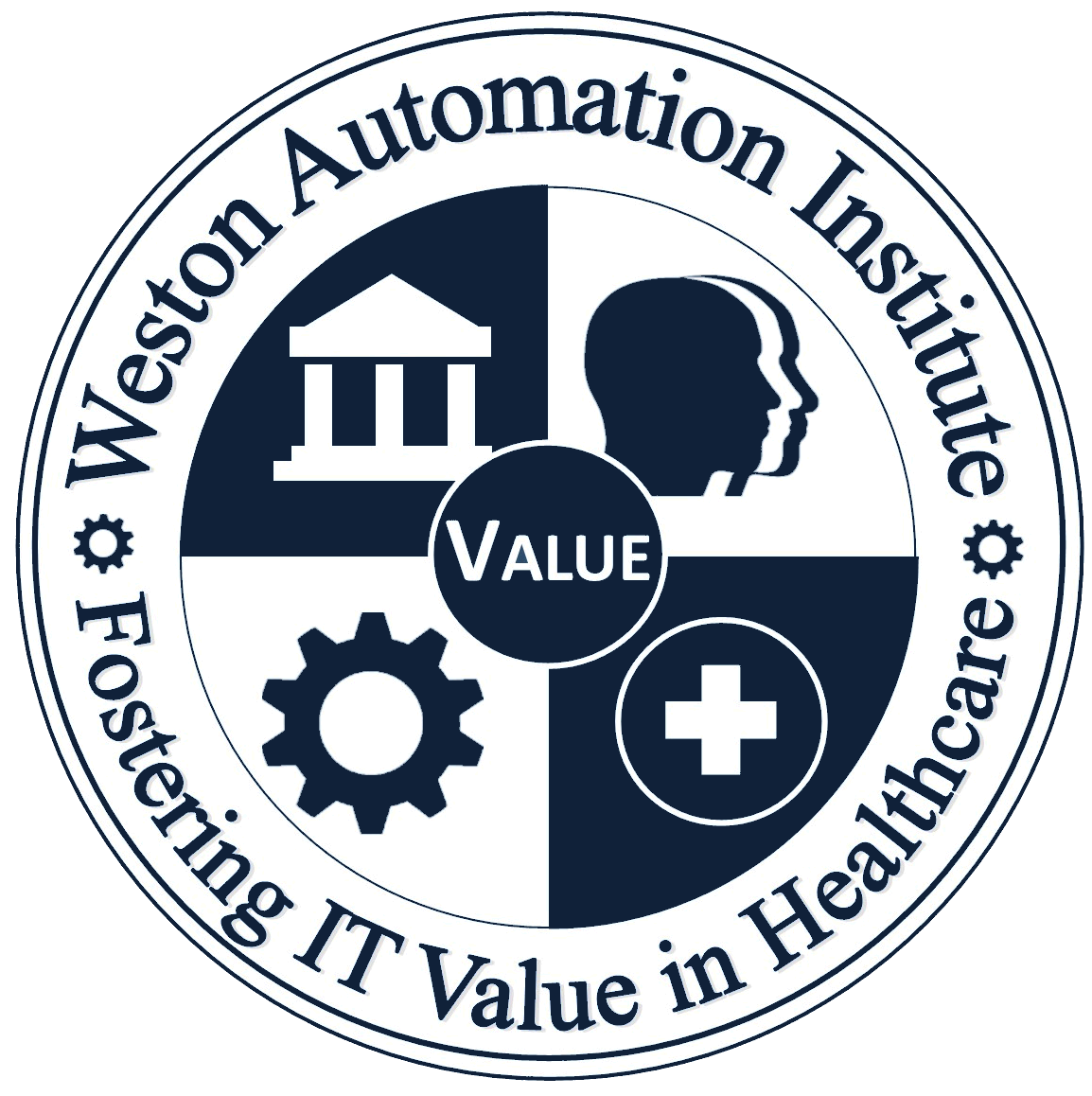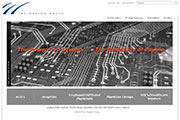Think Tanks to Build Future Scenarios in Healthcare
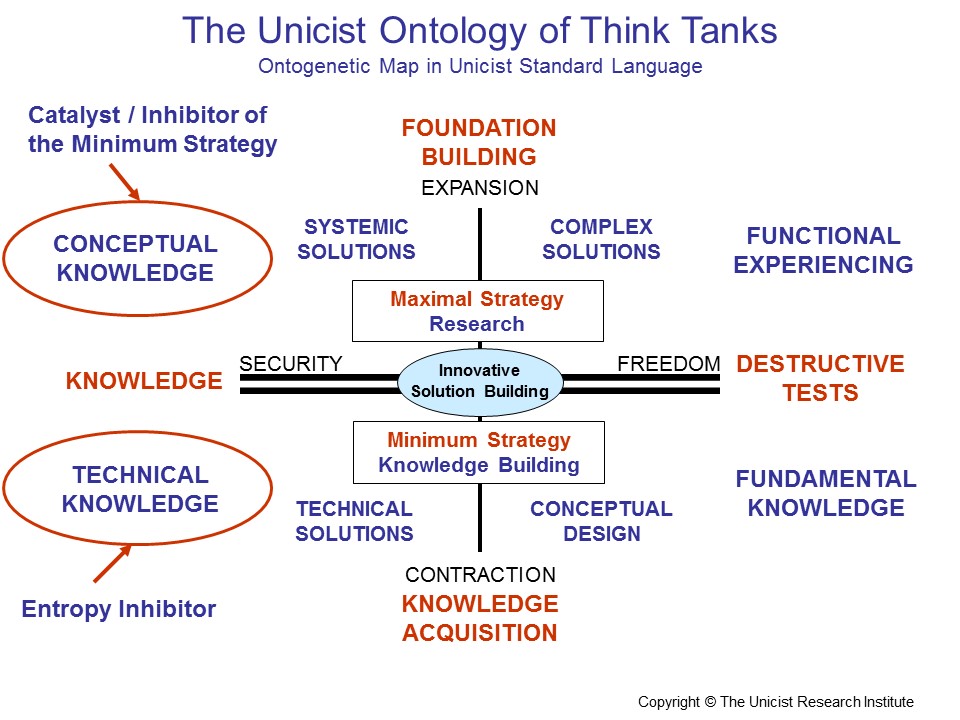
The objective of the Unicist Think Tanks is to develop the conceptual design of the complex aspects of healthcare processes or to develop possible future scenarios of the healthcare business and their consequences. These specific Think Tanks are integrated by leading professionals to develop the future scenario of automation in medical practice and management. The goal is to develop a 10-year scenario that allows taking advantage of the stages that are coming.
Unicist Future Research Laboratory
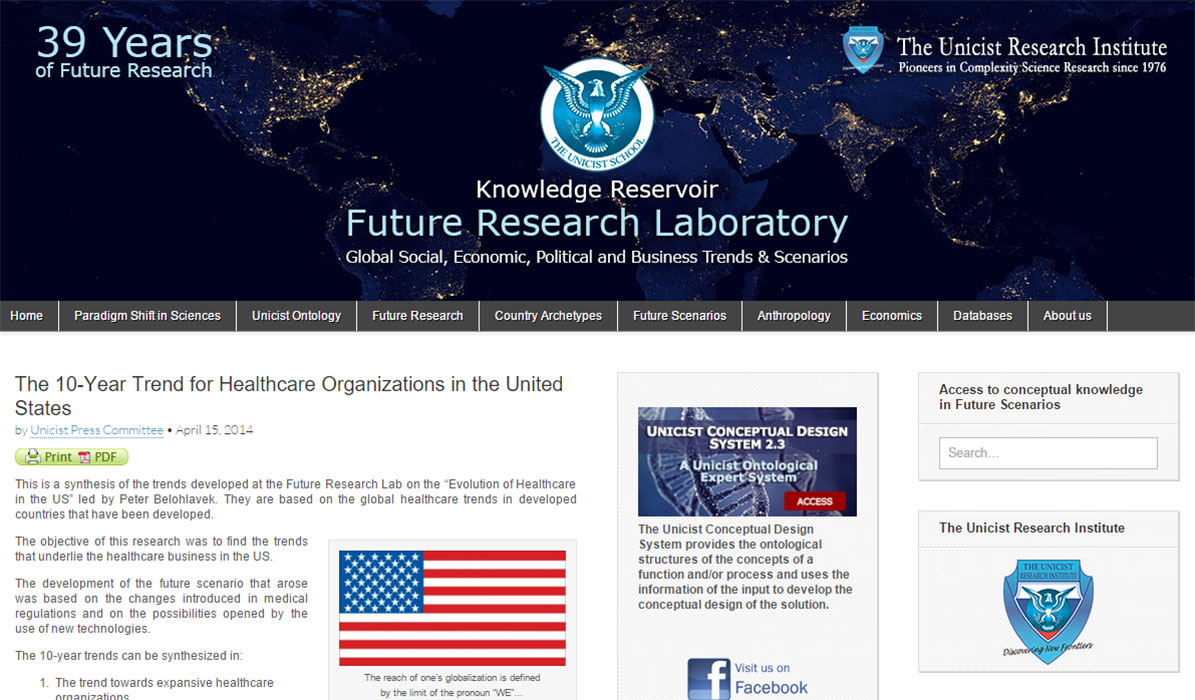
The Future Research Lab applied to Lifesciences and the Healthcare Industry has assumed an active role to influence leaders and the public opinion informing about the structural trends that underlie social, economic and technological evolution.
Business Intelligence for Hospitals

The unicist approach to business intelligence is based on a structural approach that allows dealing with the unified field of businesses and their wide and restricted contexts. On September 2, we are launching a research project to build an expert system that is able to manage the data of businesses, their restricted context and their wide context to produce the information that allows understanding the present situation of businesses and building their "future scenarios" in order to forecast its evolution. It is based on the ontogenetic maps of the business functions that are involved and of the corresponding wide and restricted contexts.
Conceptual Design Methodology
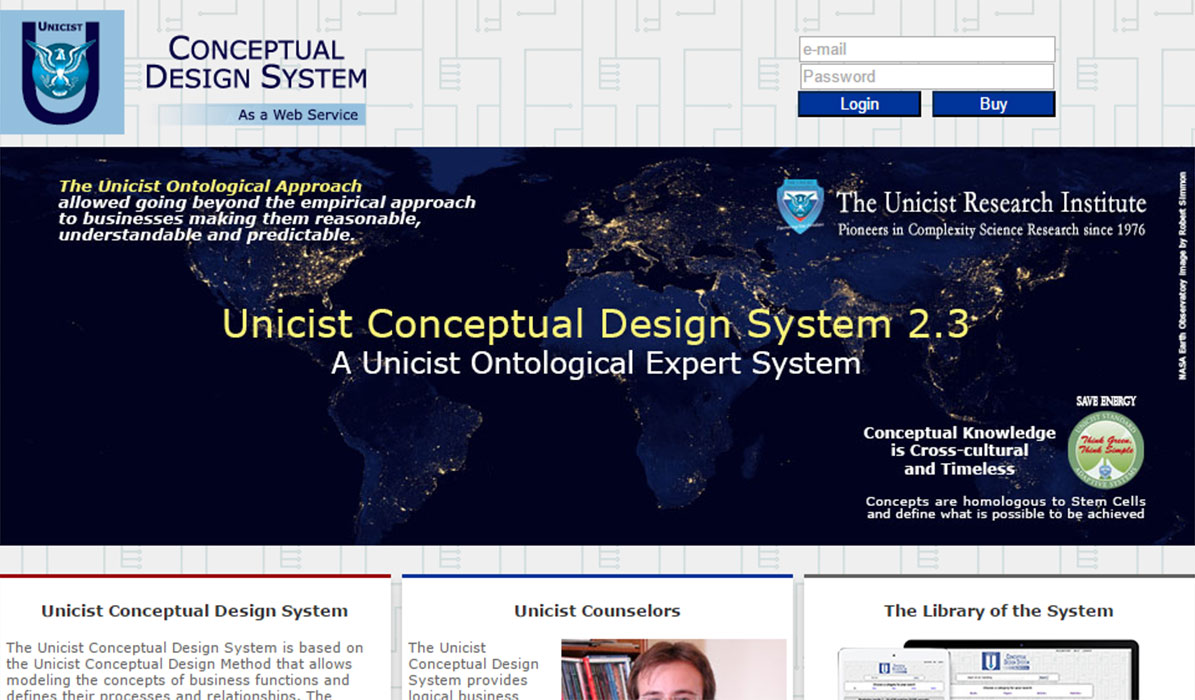
The Unicist Conceptual Design System is based on the Unicist Conceptual Design Method that allows modeling the concepts of business functions and defines their processes and relationships. The system provides the concepts of the business functions and their fundamentals to develop the conceptual design of business processes. It has to be considered that the unicist methods integrate the conceptual, systemic, analytic and operational methods based on their complementation and supplementation.
This approach allows integrating the triad of the conceptual design, the unified field diagram and the layout of processes and roles in a unified field to establish the necessary methods using plain language that can be used having empirical knowledge.
Patient Centricity
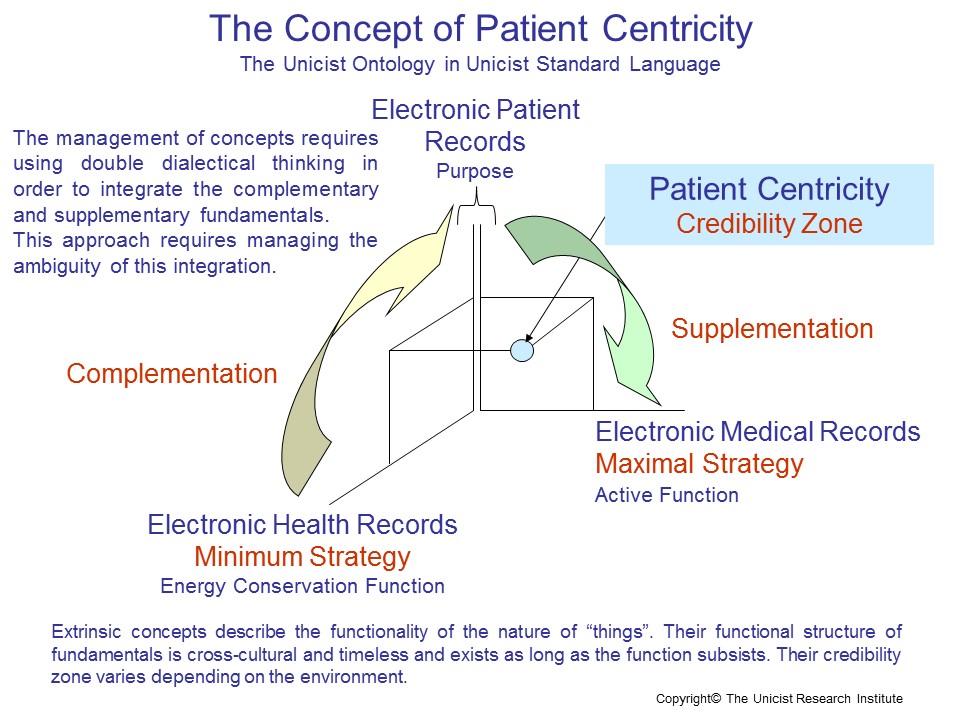
Patient Centered Management (PCM) is an organizational model that allows empowering the work processes in healthcare institutions. The information technology that sustains the Patient Centered Management implies the integration of the triadic structure of concepts that underlie healthcare IT: 1) EMR, to sustain physicians’ activities2) EHR, to deal with the diseases3) EPR, to provide a safety environment for patientsThe PCM provides a conceptual structure of rules that makes an optimal integration of these IT solutions possible and introduces the concept of adaptive interfaces in order to ensure adapting to patients.
Micro-Clinic on IT Automation
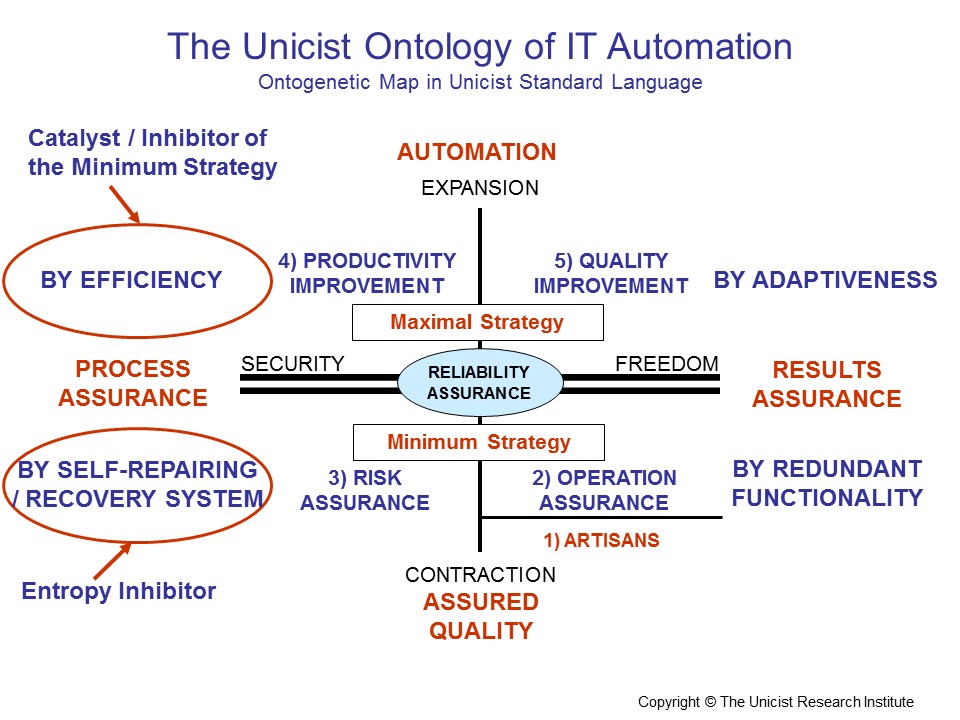
The conceptual design of IT automation is designed based on the unicist ontological structure of automation. The conceptual design of IT automation process is developed to implement solutions according to the level of maturity of a system in order to maximize reliability and minimize costs.
Micro-Clinic on Peopleware and Business Process Automation
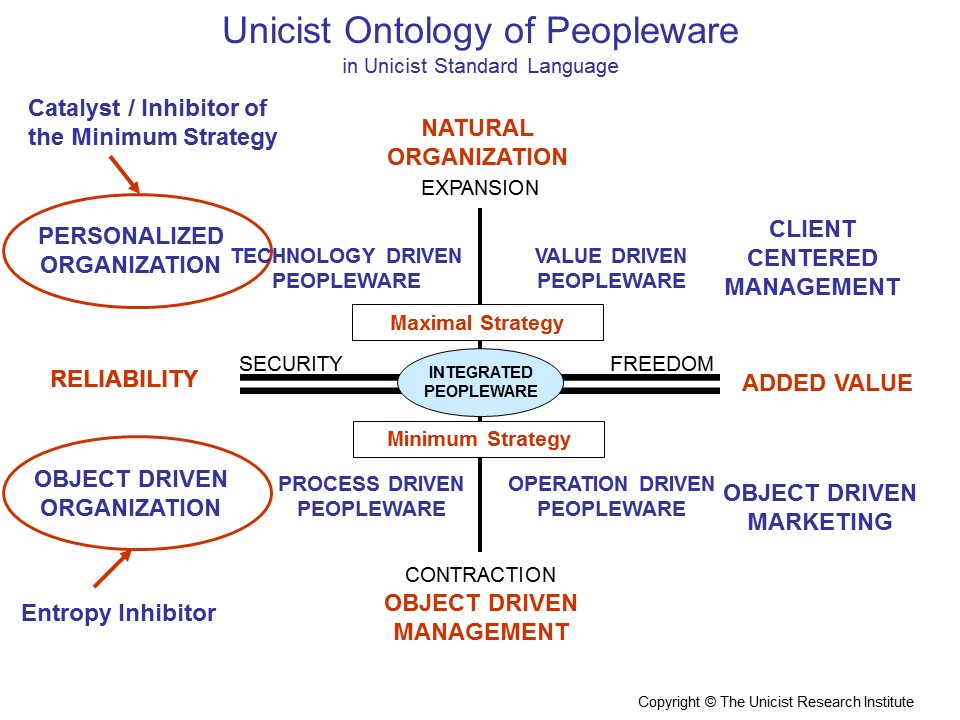
The micro-clinic on peopleware is focused on the development of the conceptual design of the integration of hardware, software and peopleware. The design establishes the process that allows integrating the business model, the business functions, the systems and people to optimize the automation of work processes.
Micro-Clinic on RobotThinking

RobotThinking is a concept that allows designing business processes and workstations optimizing the level of automation. The micro-clinic establishes the conceptual design of the process that is necessary to implant and manage automation to increase the productivity and quality of business processes.
Micro-Clinic on Virtual Collaboration
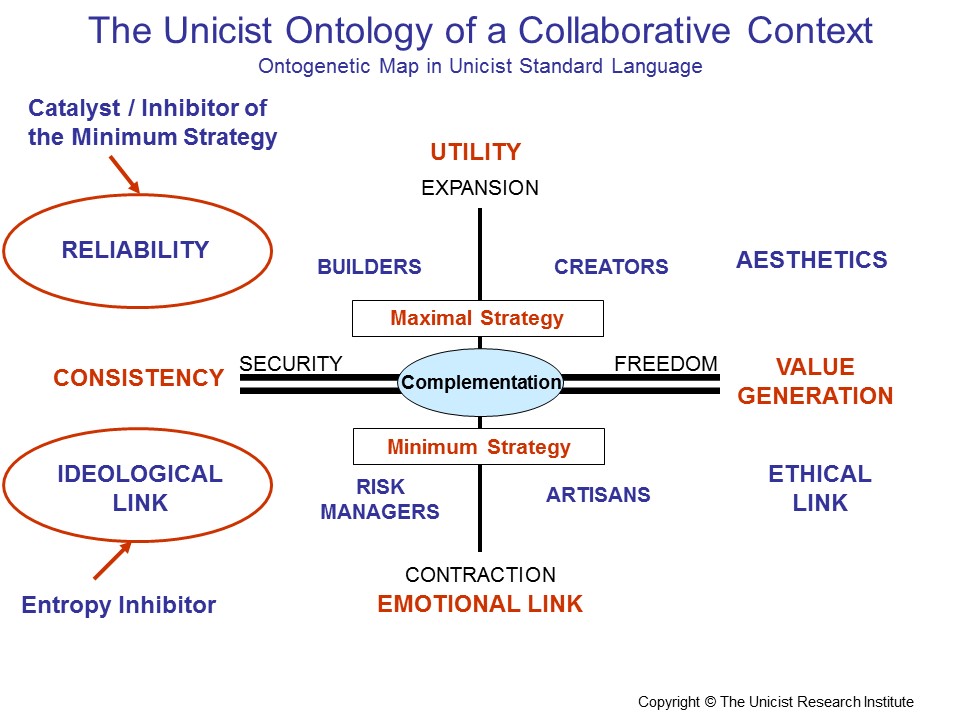
The micro-clinic on virtual collaboration provides the conceptual design of a virtual collaboration process that allows optimizing business processes and saving time and costs. This concept improves notoriously the productivity of all the functions and roles included.
About us
The Weston Automation Institute, WAI, is a US based nonprofit organization founded to foster value generation in Healthcare using Information Technology, integrating those who want to add value to healthcare organizations through the integration of peopleware, hardware and software fostering the next stage of IT solutions.
We consider medicine as a paradigmatic example of complexity. Therefore we had to adopt the unicist approach that introduced a paradigm shift in sciences that drove from dualism and empiricism to a triadic approach based on a pragmatic, structuralist and functionalist framework to deal with complex adaptive systems. This approach is based on a conceptual approach to complexity.
That is WAI uses the unicist approach developed at The Unicist Research Institute to foster the use of IT to generate value in order to empower the patient centricity of Healthcare organizations.
We invite you to participate in the WAI to help us to foster the next stage of Information Technology in Healthcare.

